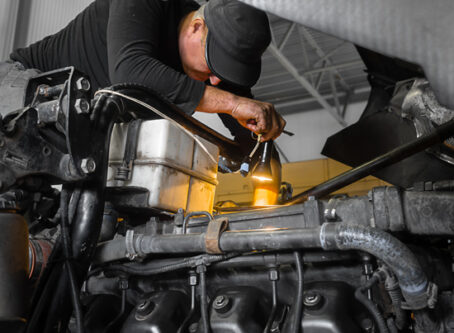Portland, Ore., council votes not to increase heavy vehicle use tax
After stakeholders voiced concern over a potential increase in the heavy vehicle use tax in Portland, Ore., the city council voted to keep rates where they are – for now.
In a 3-1 vote in favor of not increasing the HVUT tax, truckers operating in Portland, Ore., will get some reprieve. They faced the possibility of a large increase in the tax rate as the city realized it was not going to hit its revenue goal from the tax. The tax was expected to bring in $10 million over four years. Annual rate adjustments would be applied accordingly to reach that goal.
According to Commissioner Chloe Eudaly, the 2016 tax year was the first year of the heavy vehicle use tax. It takes 18 months or more to collect this tax since companies pay based on their fiscal years. With the first round of taxes concluded, the city realized that barring a significant increase the revenue will fall short by approximately $2 million.
Part of the lower revenues came from exemptions and appeals. As Eudaly pointed out during the council meeting, some companies filed exemptions and appeals to the tax.
“We were not aware of the magnitude of the potential shortfall, and therefore the required increase in the tax rate, until late summer or early fall 2018 when collections for tax year 2016 have largely concluded,” Eudaly said.
Following the passage of HB 2017, a transportation bill that increased fuel and weight-mile tax rates, freight stakeholders were concerned that HVUT rates would increase by about 25 percent.
City officials had two choices: Increase the tax rate or lower expectations. The council opted for the latter.
Commissioner Amanda Fritz, the lone vote against keeping HVUT rates at current levels, said former Commissioner Steve Novick worked hard to get respected legislation passed, which it did but not by much. In a voters’ pamphlet explaining the bill, an argument in favor titled “Let’s Pay Our Fair Share” informed voters that the measure includes a requirement that the city convene a committee to look at how to get heavy trucks to pay their fair share.
Concerned with reneging on a promise to voters, Fritz understood that there is a problem with HVUT that needs to be fixed.
“Changing the goal of how much to get from heavy vehicles before we have a fix doesn’t seem prudent to me,” Fritz said before voting against the agenda item.
Now that the HVUT rate will remain steady, council members instructed transportation officials to explore solutions to the problem.









